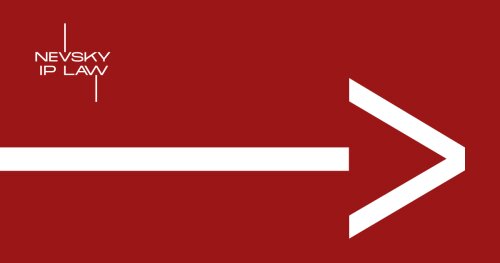Best E-commerce & Internet Law Lawyers in Russia
Share your needs with us, get contacted by law firms.
Free. Takes 2 min.
Or refine your search by selecting a city:
List of the best lawyers in Russia
About E-commerce & Internet Law in Russia
E-commerce & Internet Law in Russia encompasses a range of regulations governing online business activities, digital transactions, and the use of electronic communications. As the digital economy continues to expand, Russia has implemented various laws to ensure the protection of consumers, businesses, and parties involved in electronic trade. The regulatory framework covers aspects such as data protection, consumer rights, online advertising, cybersecurity, and electronic payments, providing a legal backbone for both domestic and international e-commerce ventures.
Why You May Need a Lawyer
There are several situations where legal assistance may be necessary in the field of E-commerce & Internet Law in Russia:
- Contract Disputes: Disagreements over terms and conditions, delivery issues, or payment conflicts often require legal intervention to resolve.
- Data Protection Issues: Compliance with data protection laws such as the Federal Law on Personal Data can be complex, requiring expert legal advice to avoid penalties.
- Intellectual Property Concerns: Issues related to trademarks, copyrights, and licensing in the online domain can necessitate legal counsel to protect intellectual property rights.
- Consumer Complaints: Handling consumer disputes over online products or services may require legal expertise to ensure compliance with consumer protection laws.
- Compliance with Regulations: The complex legal landscape might warrant consultation with a lawyer to ensure business practices are compliant with national and international e-commerce regulations.
Local Laws Overview
Key aspects of Russian laws affecting E-commerce and Internet activities include:
- Data Protection: Governed by the Federal Law on Personal Data, entities must secure personal data with stringent protocols to protect user privacy.
- Consumer Protection: The Consumer Protection Law in Russia mandates transparent communication of online business terms, accurate product information, and fair treatment of consumers.
- Electronic Signature Law: This governs the use of digital signatures for electronic documents, aiding in the lawful processing of online contracts.
- Advertising Regulations: Online advertisements are regulated to ensure truthfulness and to avoid misleading consumers.
- Antitrust Regulations: These laws prevent unfair practices and promote fair competition among businesses in the digital marketplace.
Frequently Asked Questions
What is the primary law governing e-commerce in Russia?
The primary legislation governing e-commerce in Russia includes the Consumer Protection Law and the Electronic Commerce Law, which outline the rights and responsibilities of online business operators and consumers.
How are online transactions regulated in Russia?
Online transactions in Russia are regulated to ensure security and transparency, with laws such as the Electronic Signature Law helping to validate and authenticate digital agreements.
What are the data protection requirements for online businesses in Russia?
Online businesses must comply with the Federal Law on Personal Data, which includes obligations for data storage, protection, processing consent, and reporting data breaches.
Can international e-commerce companies operate in Russia?
Yes, international e-commerce companies can operate in Russia, provided they comply with local regulations, including data protection, consumer rights, and tax obligations.
How does Russia handle cybersecurity for e-commerce platforms?
Russia has regulations in place to ensure cybersecurity, requiring e-commerce platforms to adopt necessary measures to protect against cyberattacks and data breaches.
Are there restrictions on online advertising in Russia?
Yes, online advertising is regulated to prevent false or misleading claims, protect consumers, and ensure content does not infringe on privacy rights or intellectual property.
What rights do consumers have with online purchases in Russia?
Consumers have the right to transparent information, protection from deceptive practices, and the ability to return defective products under the Consumer Protection Law.
What steps can businesses take to ensure e-commerce compliance in Russia?
Businesses should regularly review regulatory updates, implement data protection measures, fairly handle consumer complaints, and seek legal advice to ensure compliance.
Can legal challenges in e-commerce impact market access in Russia?
Yes, non-compliance or legal challenges can restrict market access, result in fines, and damage a business's reputation, making legal compliance essential.
What roles do telecommunications laws play in e-commerce?
Telecommunications laws regulate internet services and infrastructure, impacting the efficiency, security, and accessibility of e-commerce platforms in Russia.
Additional Resources
For further guidance, you may consider reaching out to the following resources:
- Russian Federal Service for Supervision of Communications, Information Technology, and Mass Media (Roskomnadzor)
- Federal Antimonopoly Service (FAS)
- Russian Ministry of Digital Development, Communications and Mass Media
- Russian Association for Electronic Communications (RAEC)
Next Steps
If you require legal assistance in E-commerce & Internet Law, consider the following steps:
- Consult with a lawyer specializing in e-commerce and internet law to assess your specific needs and challenges.
- Ensure your legal representation is well-versed in both Russian and international e-commerce regulations.
- Gather all relevant documents and evidence related to your issue for a comprehensive consultation.
- Stay informed about legislative changes and updates to avoid future compliance issues.
Lawzana helps you find the best lawyers and law firms in Russia through a curated and pre-screened list of qualified legal professionals. Our platform offers rankings and detailed profiles of attorneys and law firms, allowing you to compare based on practice areas, including E-commerce & Internet Law, experience, and client feedback.
Each profile includes a description of the firm's areas of practice, client reviews, team members and partners, year of establishment, spoken languages, office locations, contact information, social media presence, and any published articles or resources. Most firms on our platform speak English and are experienced in both local and international legal matters.
Get a quote from top-rated law firms in Russia — quickly, securely, and without unnecessary hassle.
Disclaimer:
The information provided on this page is for general informational purposes only and does not constitute legal advice. While we strive to ensure the accuracy and relevance of the content, legal information may change over time, and interpretations of the law can vary. You should always consult with a qualified legal professional for advice specific to your situation.
We disclaim all liability for actions taken or not taken based on the content of this page. If you believe any information is incorrect or outdated, please contact us, and we will review and update it where appropriate.
Browse e-commerce & internet law law firms by city in Russia
Refine your search by selecting a city.















